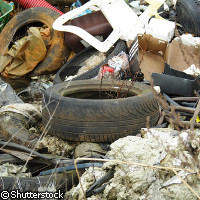New EU project to improve waste management in Asia
A new EU-funded project unites European and Asian experts with the aim of solving Asia's chronic waste problem. Dubbed ISSOWAMA ('Integrated sustainable solid waste management in Asia'), the three-year project has been allocated just under EUR 1 million from the 'Environment (including climate change)' Theme of the Seventh Framework Programme (FP7). The project's 22 partners include researchers, government representatives, waste disposal experts and non-governmental organisations (NGOs) from Europe and Asia. In many towns and cities across Asia, rubbish disposal is largely uncontrolled, resulting in serious ground and water pollution and the spread of diseases linked with unhygienic conditions. By linking up European and Asian experts representing a variety of stakeholders, the ISSOWAMA project aims to develop innovative yet low cost and adaptable solutions to waste management in Asia and communicate these results to local groups; eventually the project hopes to disseminate its findings to over 12,000 waste disposal workers across Asia. The first task of the project partners will be to analyse and evaluate existing solid waste management strategies in Asia. Case studies will aid the project partners in tracing the main waste flows and developing recommendations on the action to be taken. 'Obstacles such as gaps in technological knowledge, ecologically negative consequences as well as barriers at socio-economic and political level will be identified and dismantled by means of targeted measures,' said Project Coordinator Dr Gerhard Schories, Technical Director of the Water, Energy and Land Use Management Department at ttz Bremerhaven in Germany. 'The ongoing involvement of local bodies and creative forces will increase regional acceptance.' The main goal of the project is to develop effective waste management strategies for Bangladesh, India, Cambodia, Vietnam, Thailand, China, Indonesia and the Philippines. Crucially, these waste management strategies should take into account environmental impacts, economic factors and the socio-economic situation as well as the legal framework in each country. In this way, the project hopes to link waste treatment with poverty reduction and a better quality of life for the local people. The project team will hold workshops in eight countries and create posters, leaflets and simple guides to waste management that will be translated into nine languages.



